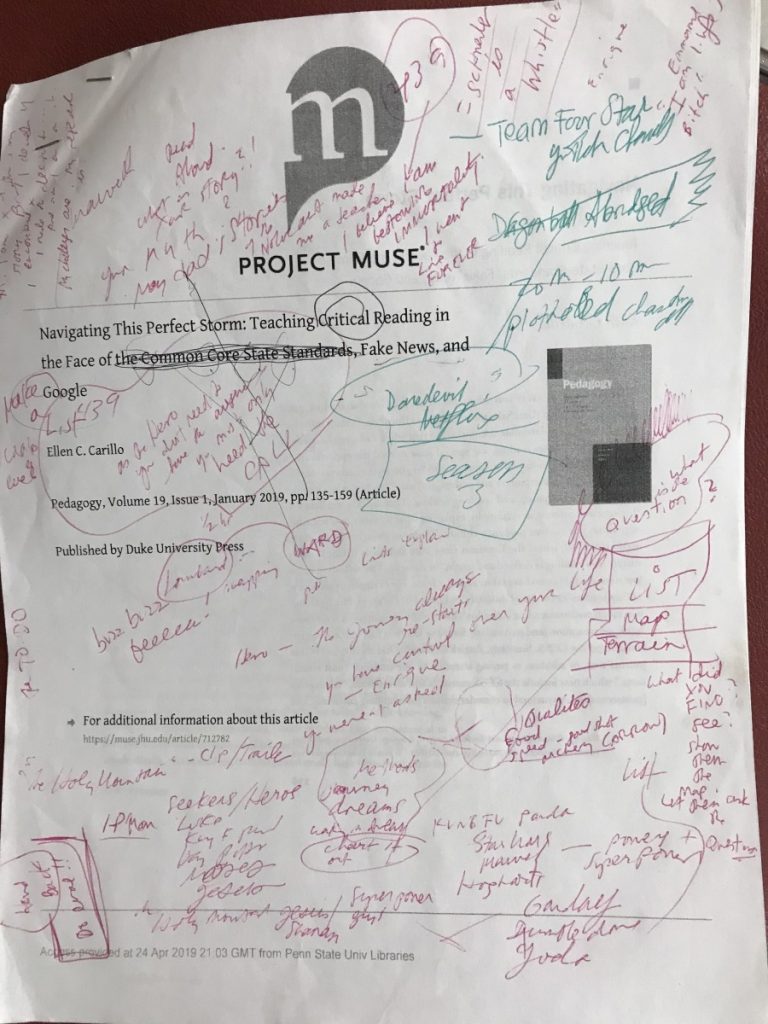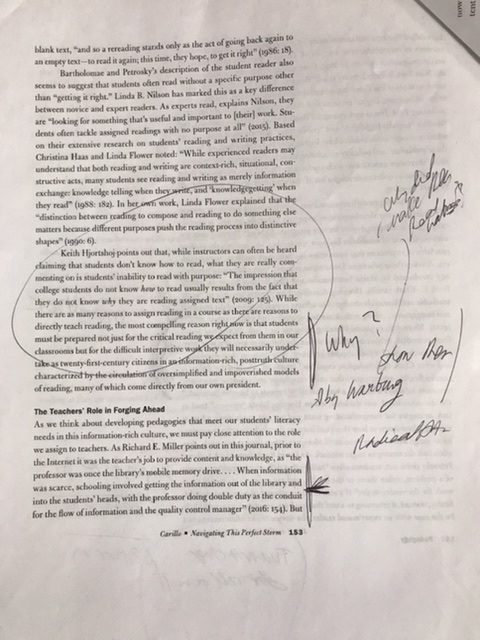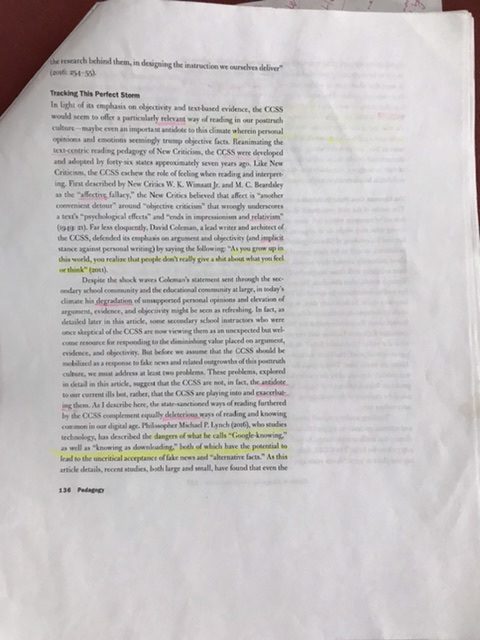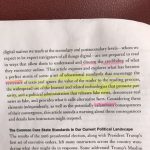
Hi Class. Here is a photocopy — my personal photocopy to be exact — of a scholarly article that I might assign you to read soon. Messy, right?

That’s because I was reading it for me and no one else to see. Also, I was reading it for a reason: it was assigned to me by a committee of fellow educators, and I had to respond to their questions on my reactions to the article in a seminar: would I adopt it in my English course, and how, and why. Would I recommend it to other professors?
I decided later that I would use it in an English course. In fact, you may be reading it soon. So I re-read it a second time as a “student,” or how I thought a student might see it. Then, I highlighted different passages and aspects to help me talk to students:

…and I started to highlight words that might be useful vocabulary terms, phrases that I thought students might benefit from if they were skimming.
In short: I read “for.”
I am one person. And this is one article. But that doesn’t mean there is only one way to read.
I have read this article many times. Why? Because it changes depending on the things going on in my mind.
Reading isn’t static.
It’s active.
Like a flowing river.
Advice:
Never leave yourself at the door of a book. Always bring you. Bring your mind and your heart to everything you read.
Read with You. Read As you.
And then know for whom you toil.




